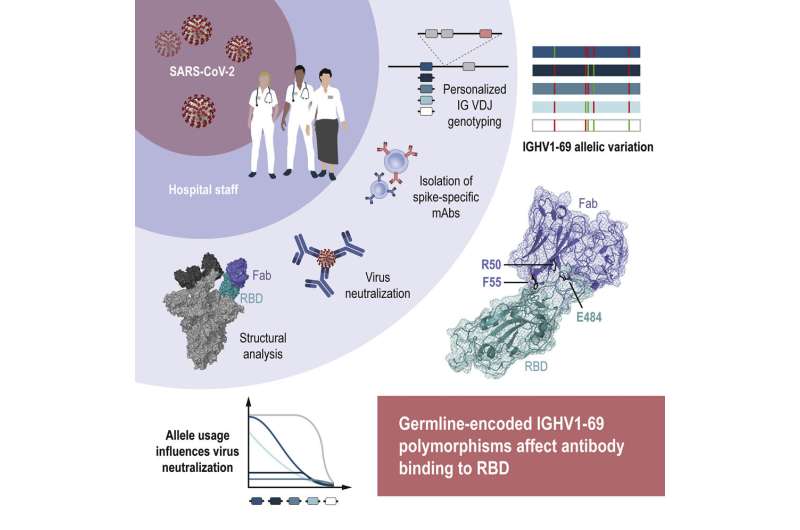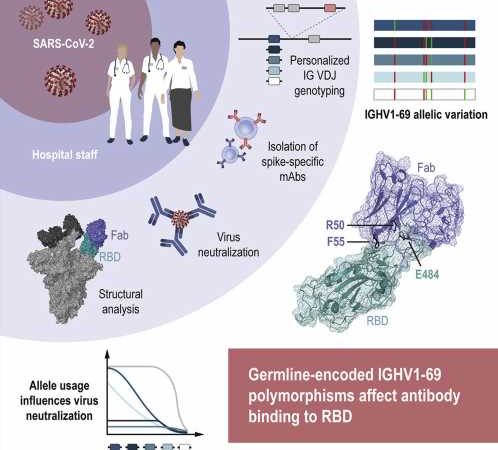
Ph.D. student Pradeepa Pushparaj, in Gunilla Karlsson Hedestams group at the Department of Microbiology, Tumor and Cell Biology, is the first author of a study recently published in Immunity.
The study explains how antibody genes can influence the ability to make neutralizing antibodies to SARS-CoV-2. Karolinska Institutet interviewed Pushparaj to learn more about her work.
Tell us about the most important results of your study
In this study, we show that antibody genes are highly variable in the population and that the specific gene variants you have can influence the type of neutralizing antibodies you make to SARS-CoV-2.
Why are these results important? Do you see any potential applications?
Understanding antibody germline gene variation is important as it can help explain why we differ in our abilities to control infections or respond to vaccination. In the long run, this can help identify persons who are at greater risk during a pandemic.
How can this new knowledge contribute to improving human health?
It is well known that humans are genetically diverse. However, the degree of variation that is found in the genes that encode our antibodies has remained unknown as these gene regions are not covered by conventional whole genome sequencing approaches.
How did you conduct the study?
We studied a cohort of health care workers infected with SARS-CoV-2 and isolated monoclonal antibodies bound to the virus spike protein. We then showed that specific gene variants were required to make a certain class of neutralizing antibodies.
What is the next step in your research?
The group is currently performing comprehensive studies on genetic variations in antibody genes by analyzing samples from different parts of the world. I will defend my thesis in May and am now focused on finalizing another paper and writing my thesis.
More information:
Pradeepa Pushparaj et al, Immunoglobulin germline gene polymorphisms influence the function of SARS-CoV-2 neutralizing antibodies, Immunity (2022). DOI: 10.1016/j.immuni.2022.12.005
Journal information:
Immunity
Source: Read Full Article
